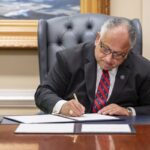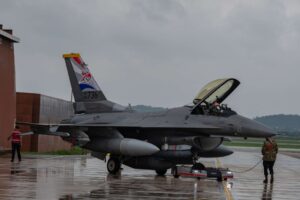Mumbai (Reuters), March 7 (11/3, 28.57) – The Lion City is clawing away at Russian President Vladimir Putin’s fallback options. A decision by Singapore to sanction certain Russia banks and transactions, despite no binding resolution from the U.N. Security Council, is a bold move for the typically neutral financial centre. It spotlights Moscow’s shrinking economic ground in Asia.
The small city-state has little to lose as it stands up against what its foreign minister Vivian Balakrishnan calls “might is right” geopolitics. The direct financial relationship with Russia is tiny. Nor will siding with the West on Ukraine immediately irk China, Singapore’s top trading partner. President Xi Jinping is busy minimising the fallout read more from Putin’s actions, which Beijing refuses to condemn, on China’s Belt and Road infrastructure projects in eastern European countries.

Yet the sanctions, targeting four Russian banks and including an export ban on electronics, computers and military items, is a blow to Moscow’s effort to turn its decade-long pivot to Asia into something that goes beyond just China. Since Russia’s annexation of Crimea in 2014, bilateral trade with the People’s Republic has grown by more than 50%; last year’s figure hit a record $147 billion, per Chinese customs data. Notably, no other major Asian nation features in Russia’s top five trading partners.
Moscow’s unease with its growing reliance on China is matched by persistent efforts to nurture relationships elsewhere. As recently as December, Russia was cheering progress towards a free trade agreement between Singapore and the Eurasian Economic Union. As a gateway to Southeast Asia, the city state was poised to serve as a valuable hub for Russian exports, including food grains. That’s likely to go on pause.
Singapore joins Japan, South Korea and Taiwan to announce sanctions in the region. But even in Asian countries that haven’t taken sides read more , the rising influence of U.S.-led alliances like the Quad and the Indo-Pacific is curbing Russia’s market opportunity for non-energy exports. Take India, for example. Russian exporters have long supported its efforts to build nuclear power plants and a weapons arsenal. The United States, however, is increasingly cooperating with New Delhi in these areas too. As sanctions bite, Asia will not make for an easy Russian fallback.
Follow @ugalani on Twitter
(The author is a Reuters Breakingviews columnist. The opinions expressed are her own.)
– Singapore on March 5 detailed sanctions that target four Russian banks and include an export ban on electronics, computers and military items. It also banned financial institutions in Singapore from providing any services that facilitate fundraising by the Russian government and banned digital payment token service providers from transactions that could help to circumvent the financial measures.
– Minister for Foreign Affairs Vivian Balakrishnan, on first announcing sanctions action on Feb. 28, described Russia’s invasion of Ukraine as unacceptable and a gross violation of international norms. “Instead of choosing sides, we uphold principles. Consequently, when we conduct our foreign policy in a consistent manner, we become reliable partners”, he said, adding that “a world order cannot exist where might is right”.















